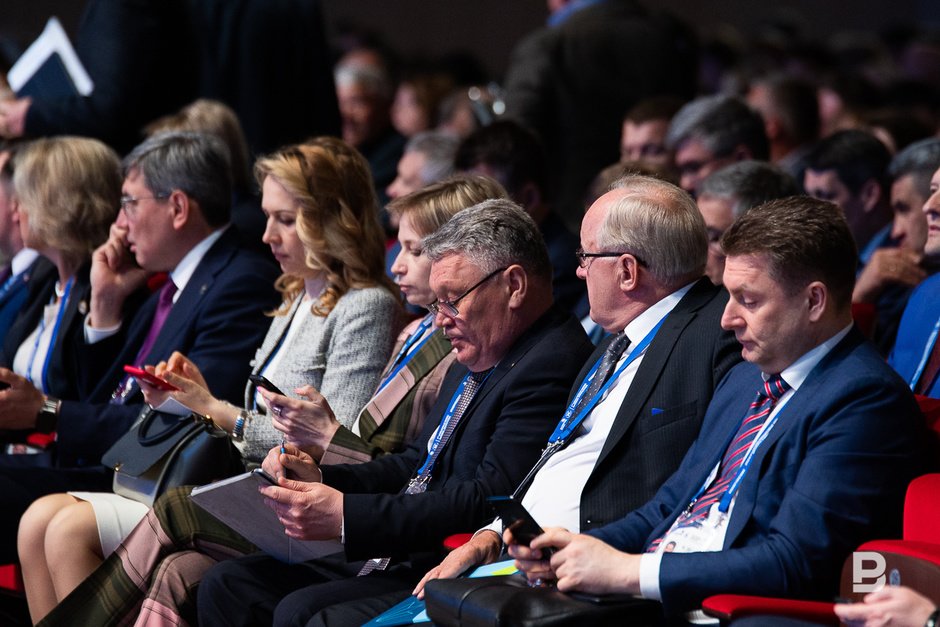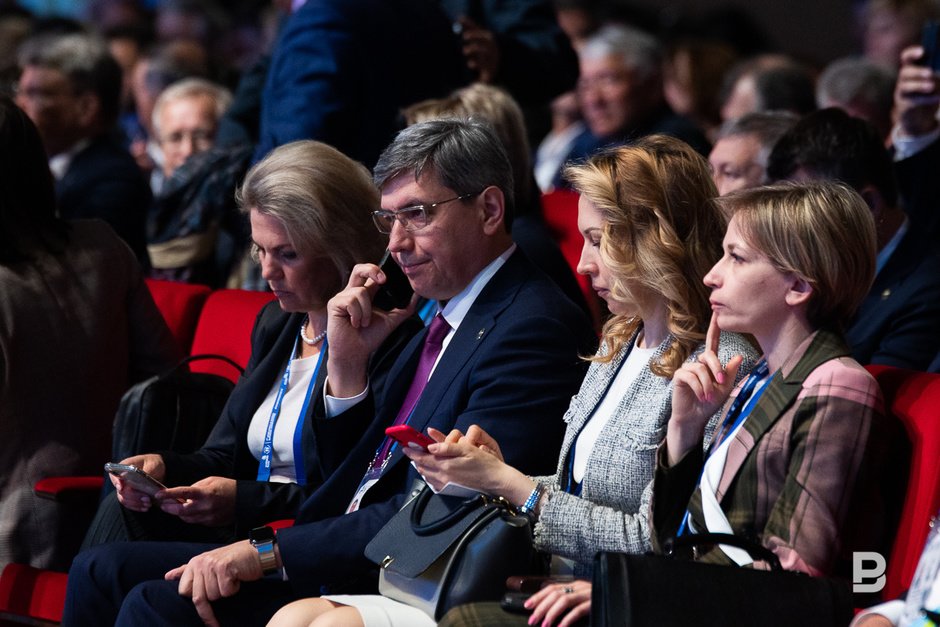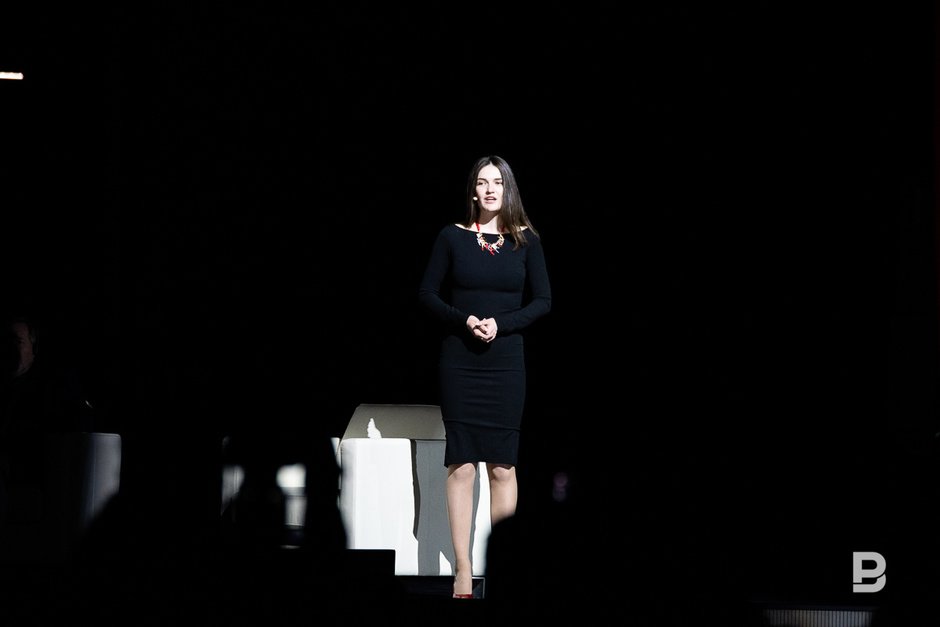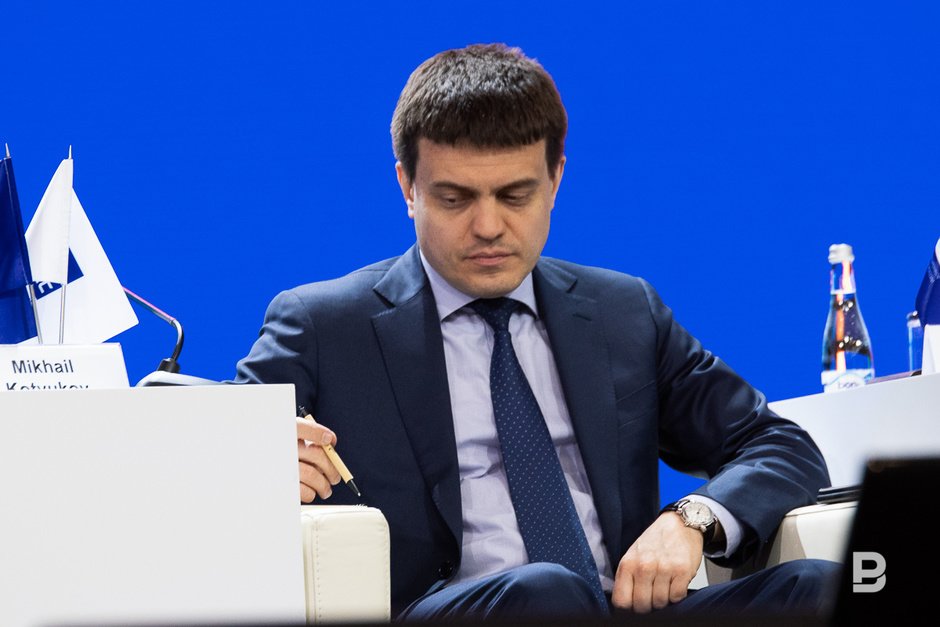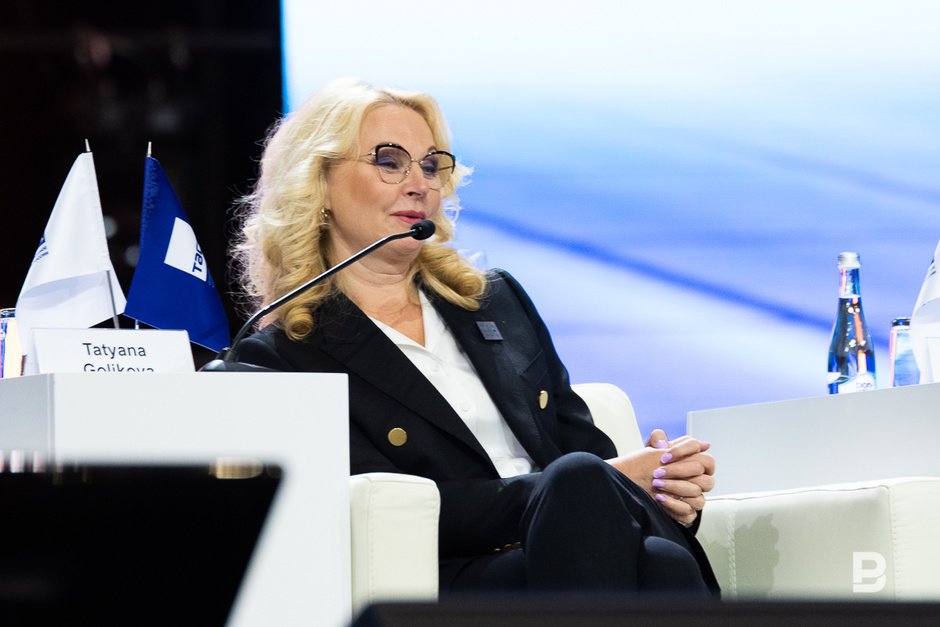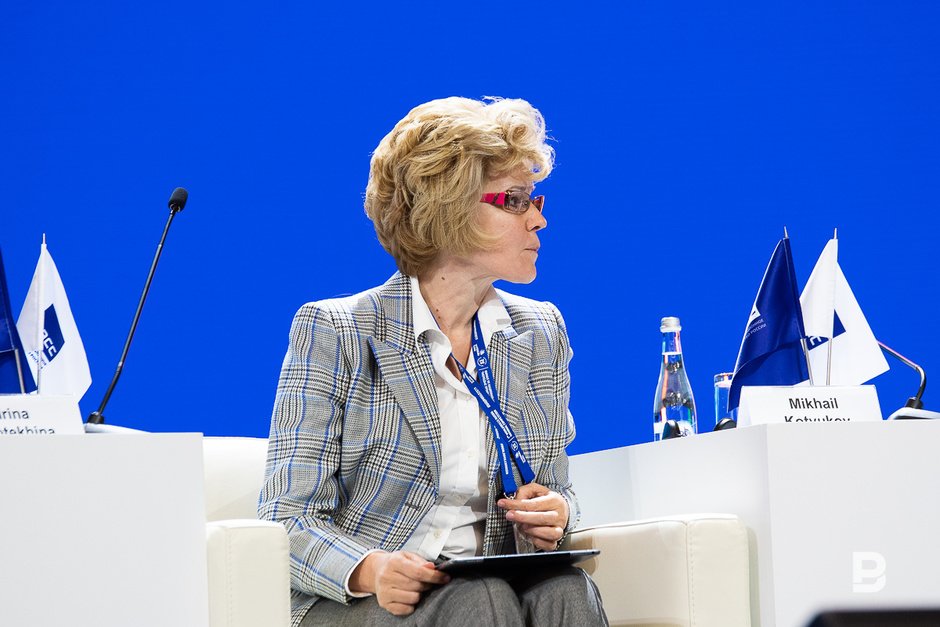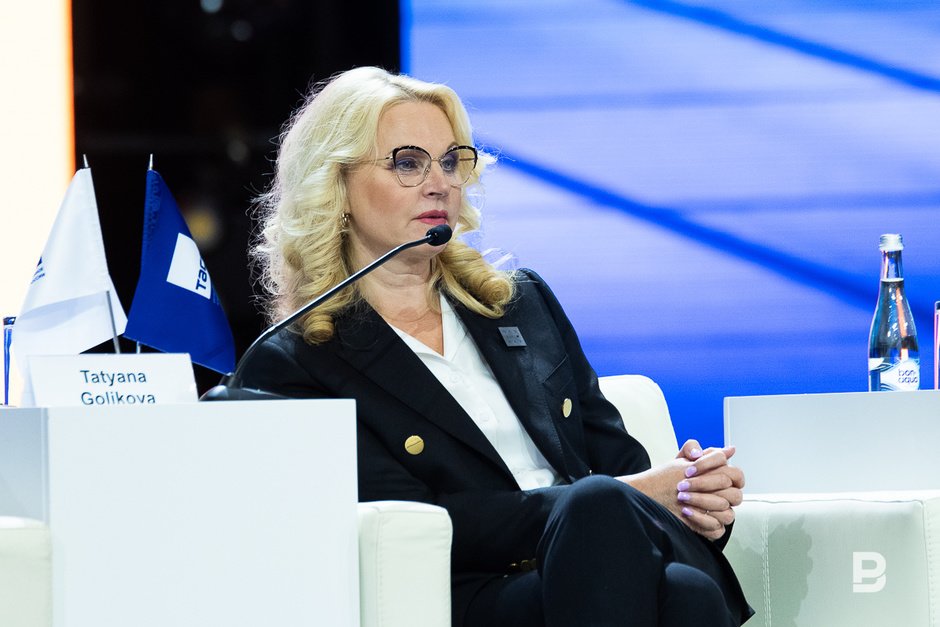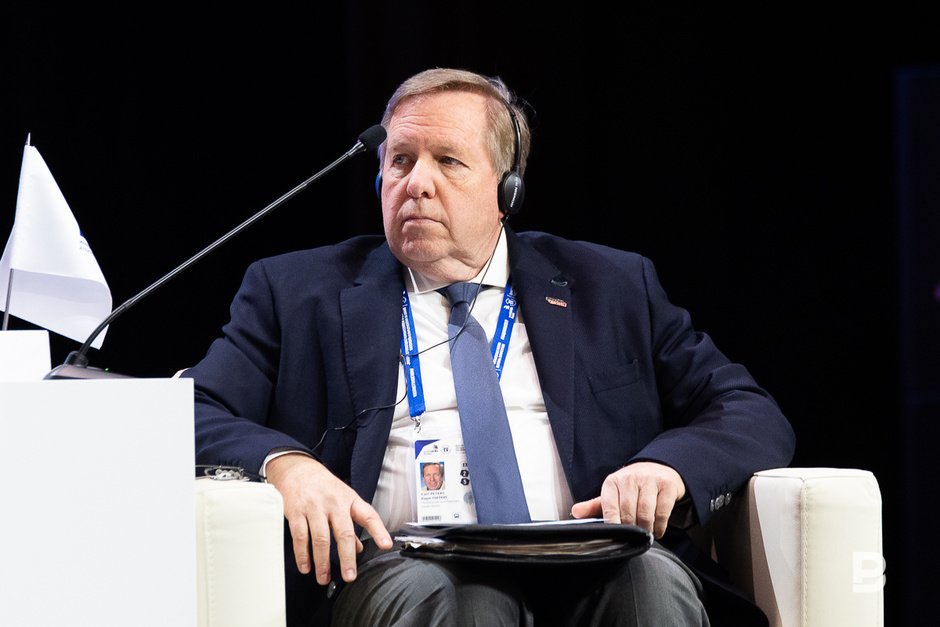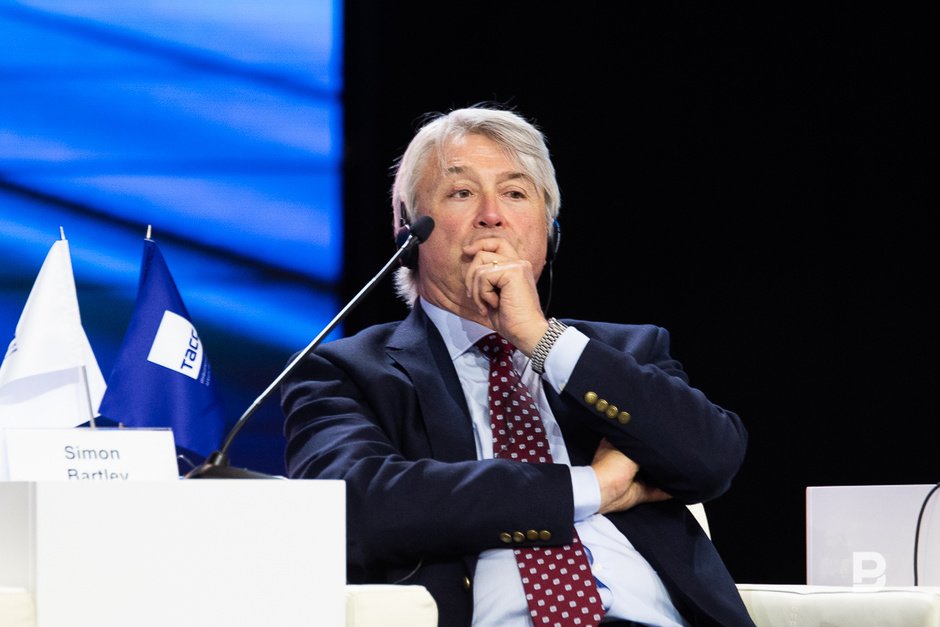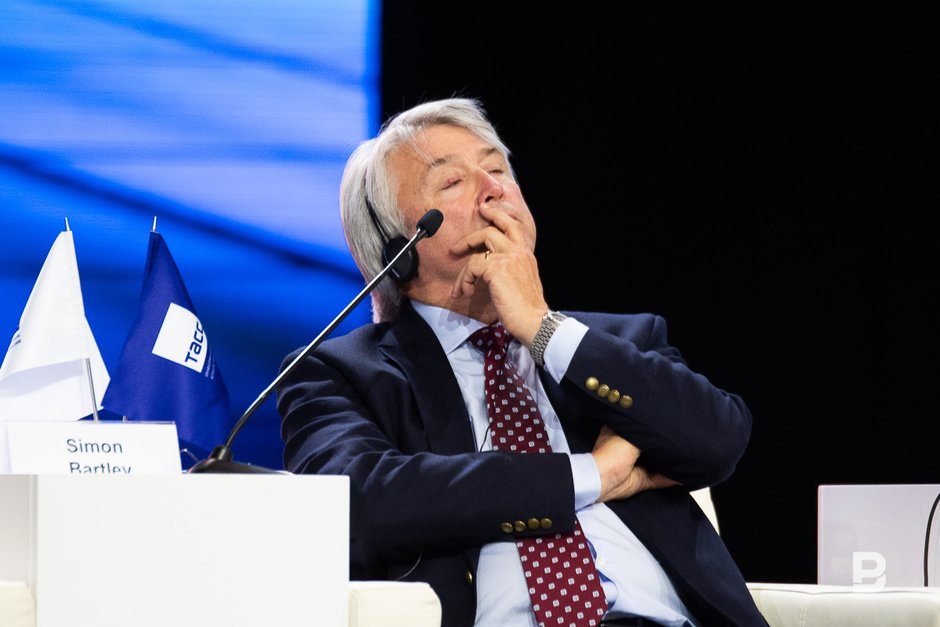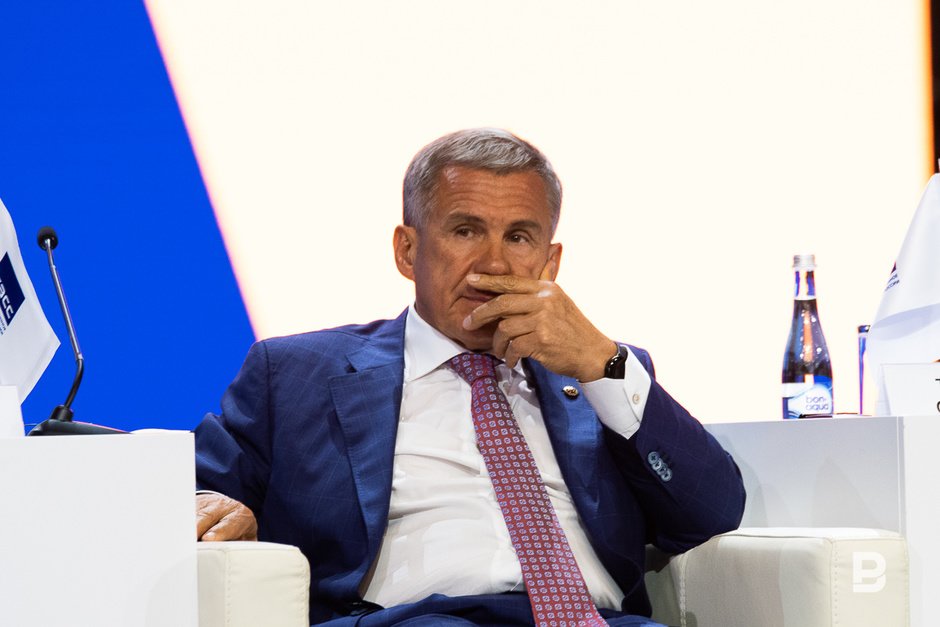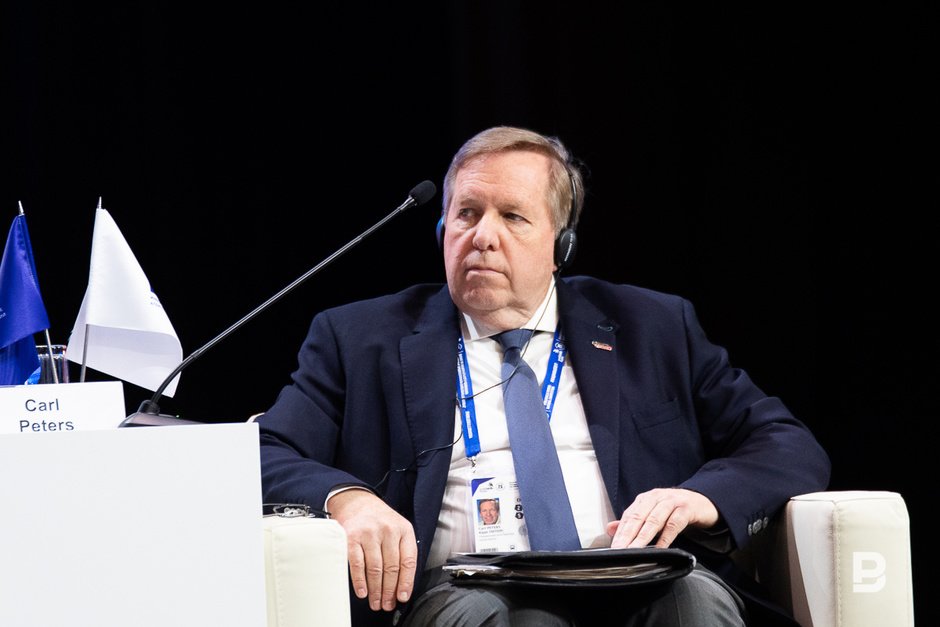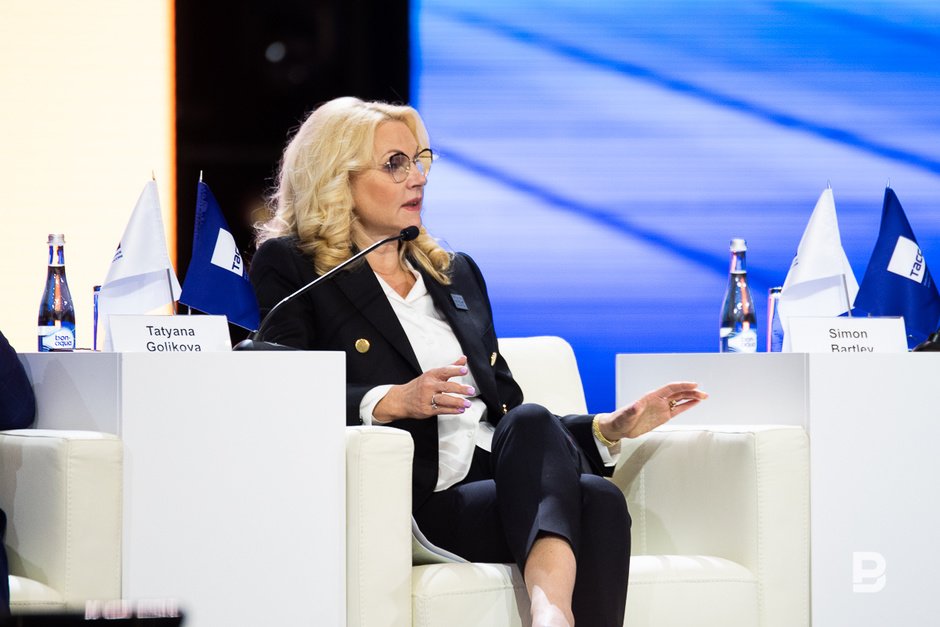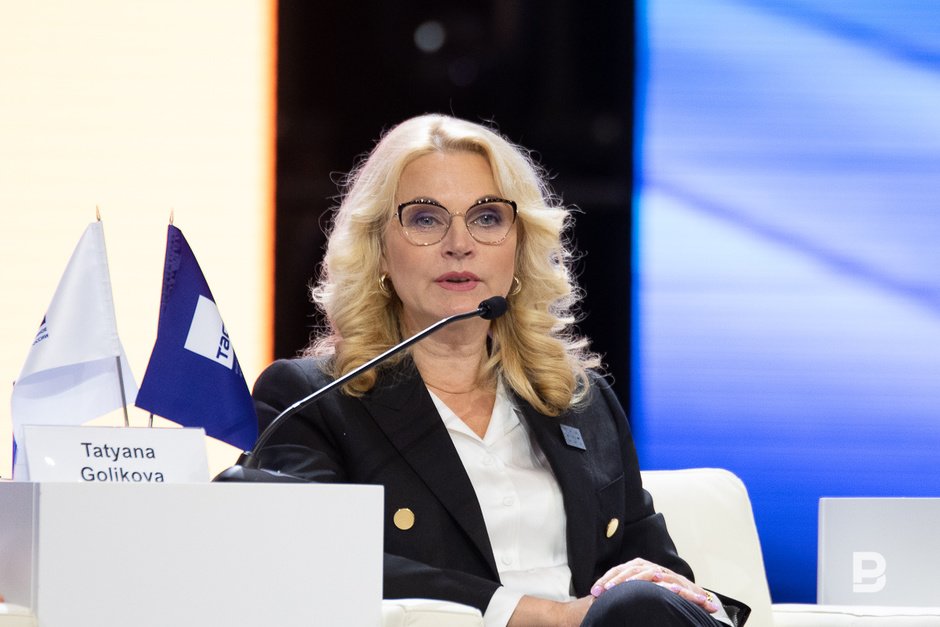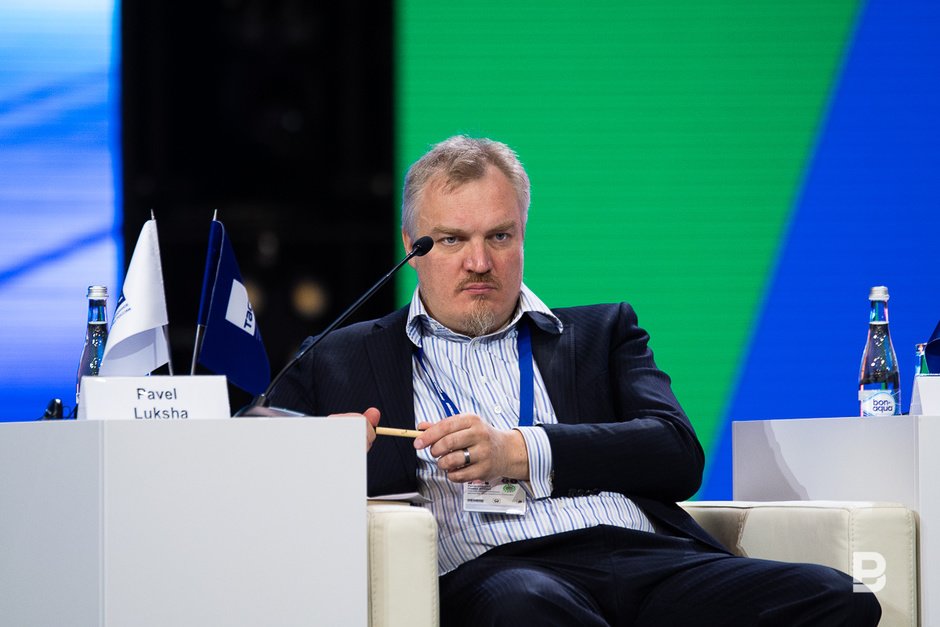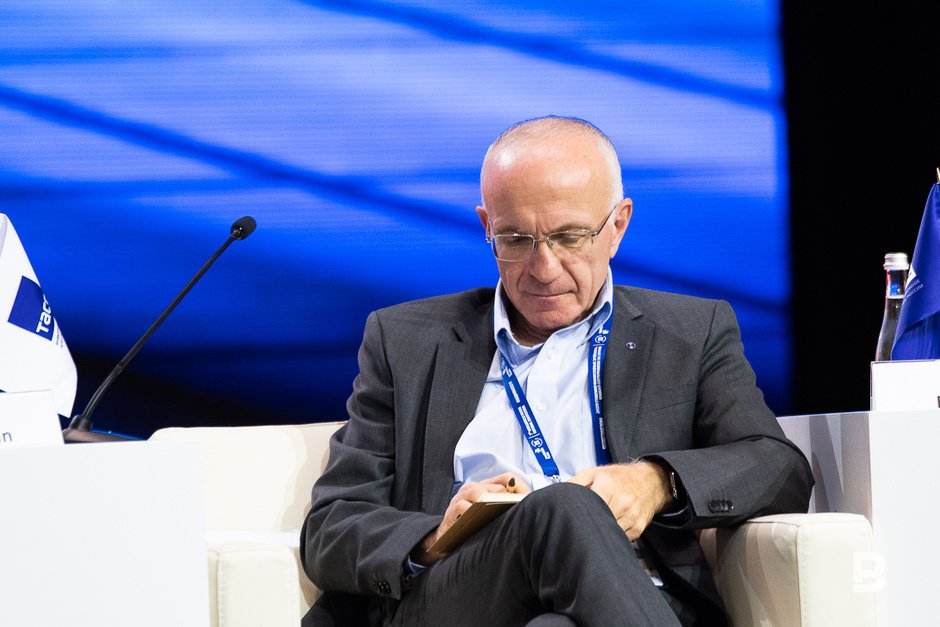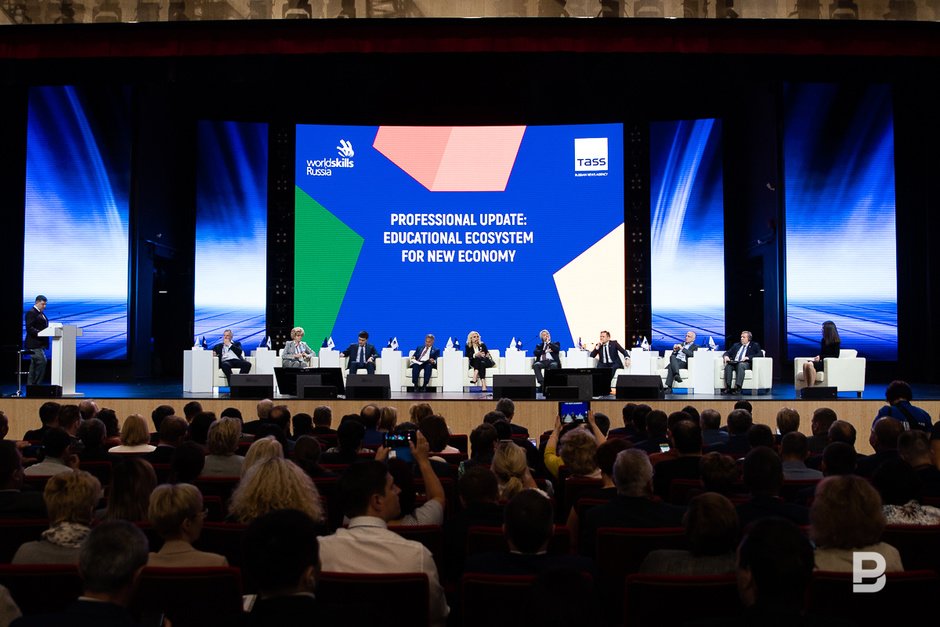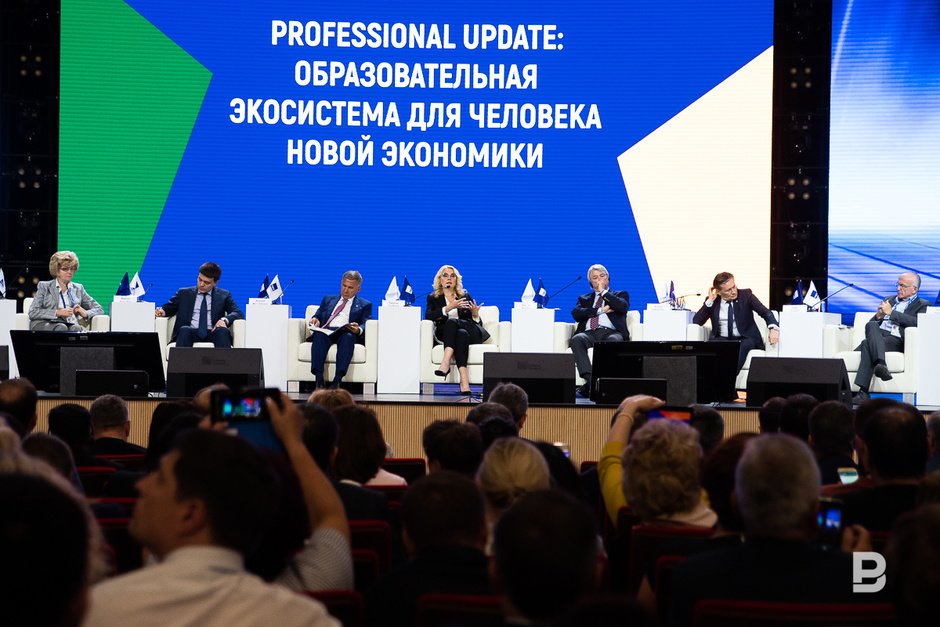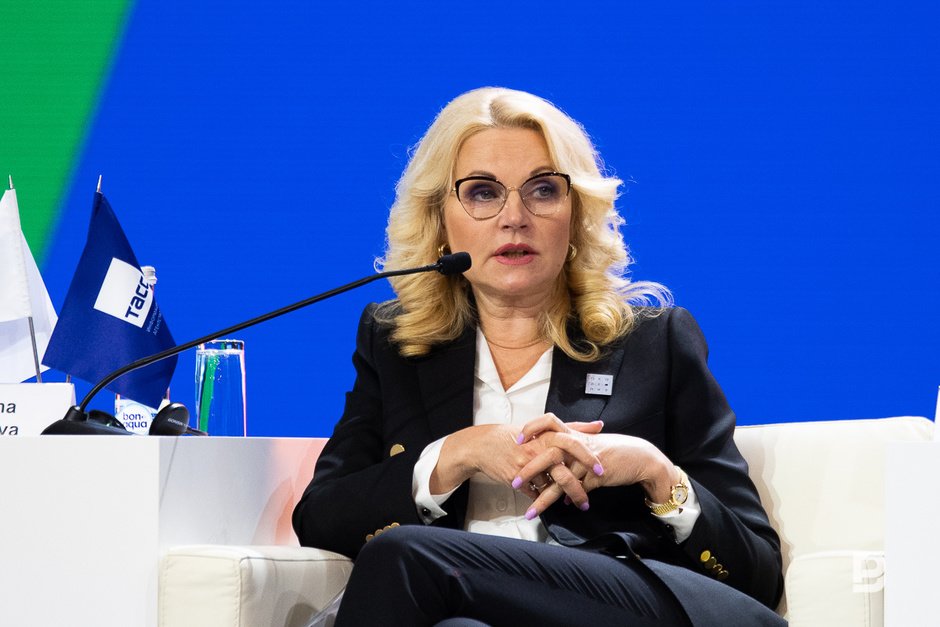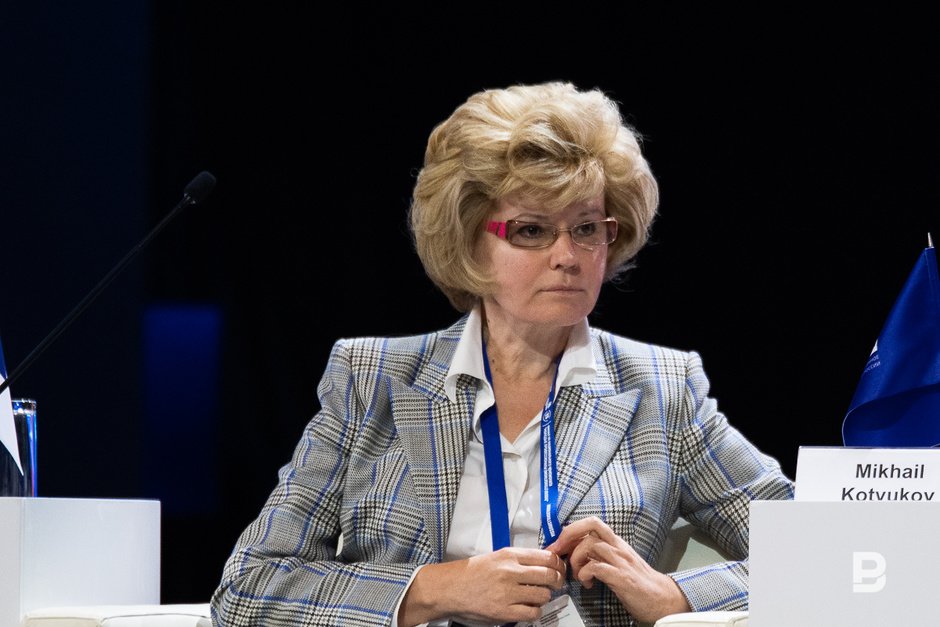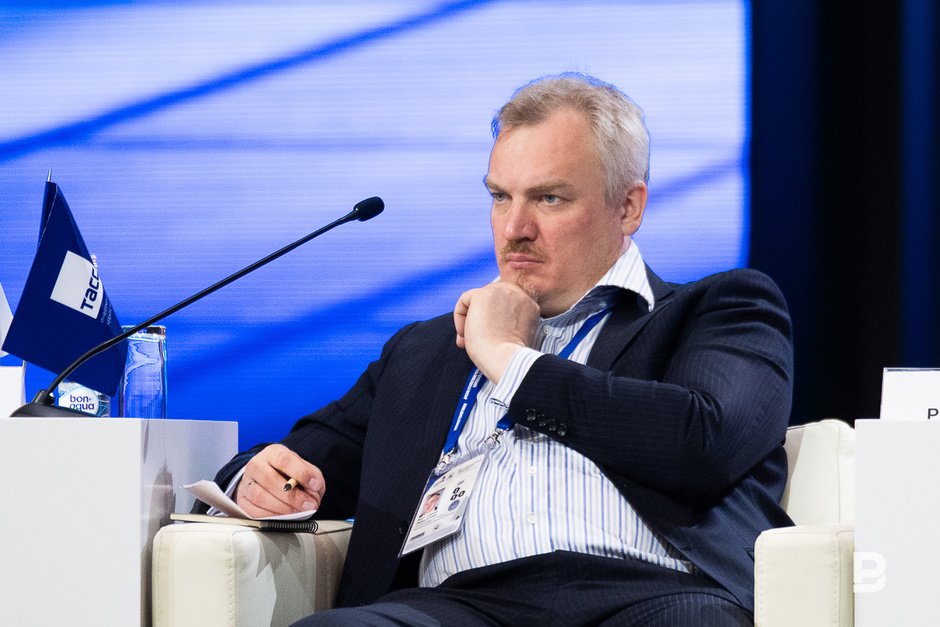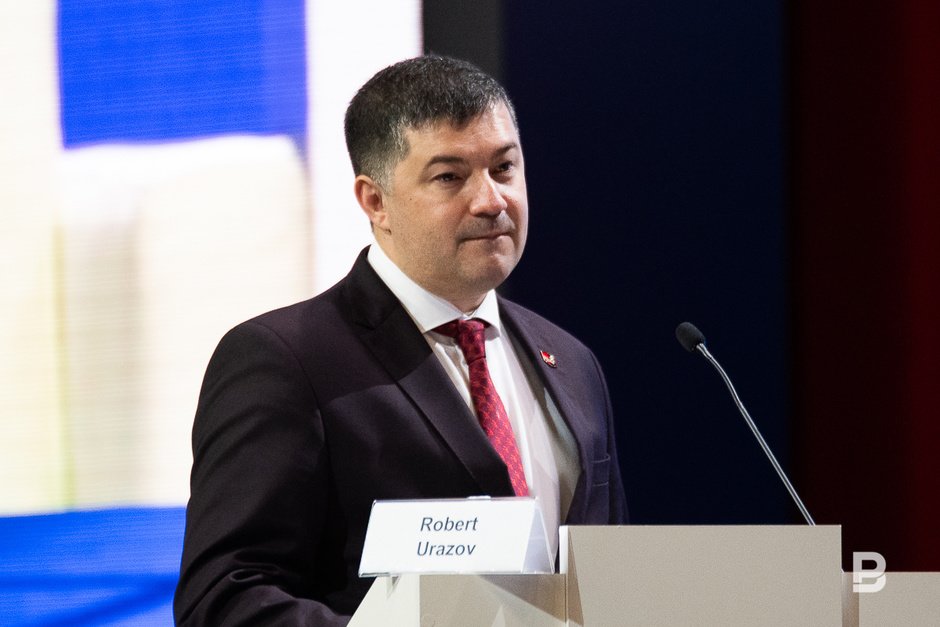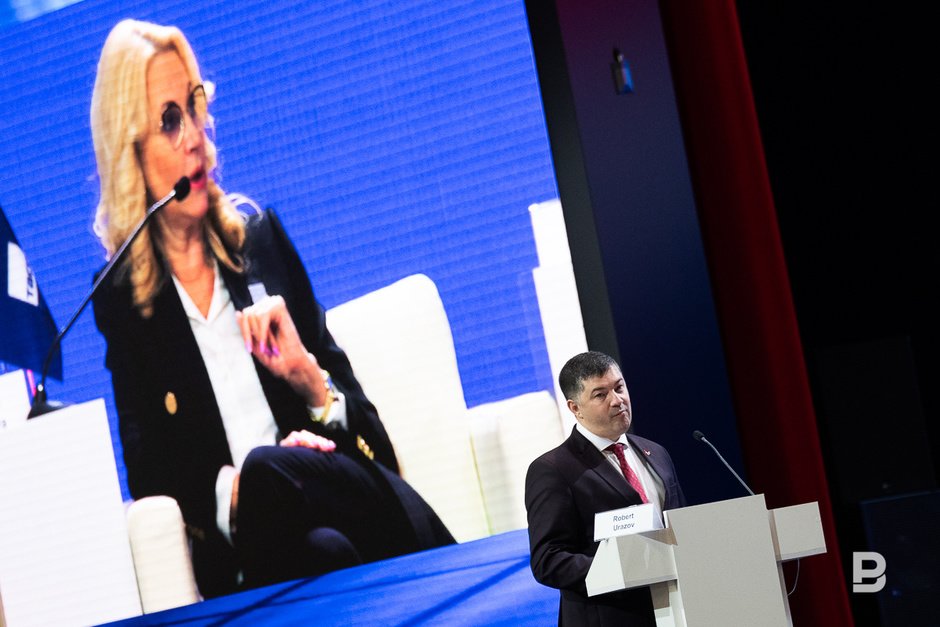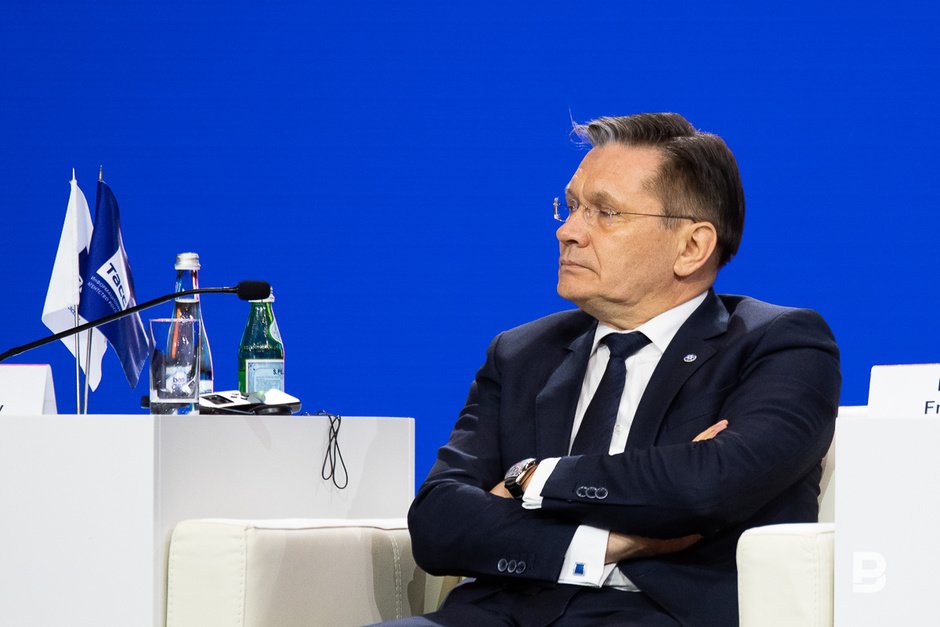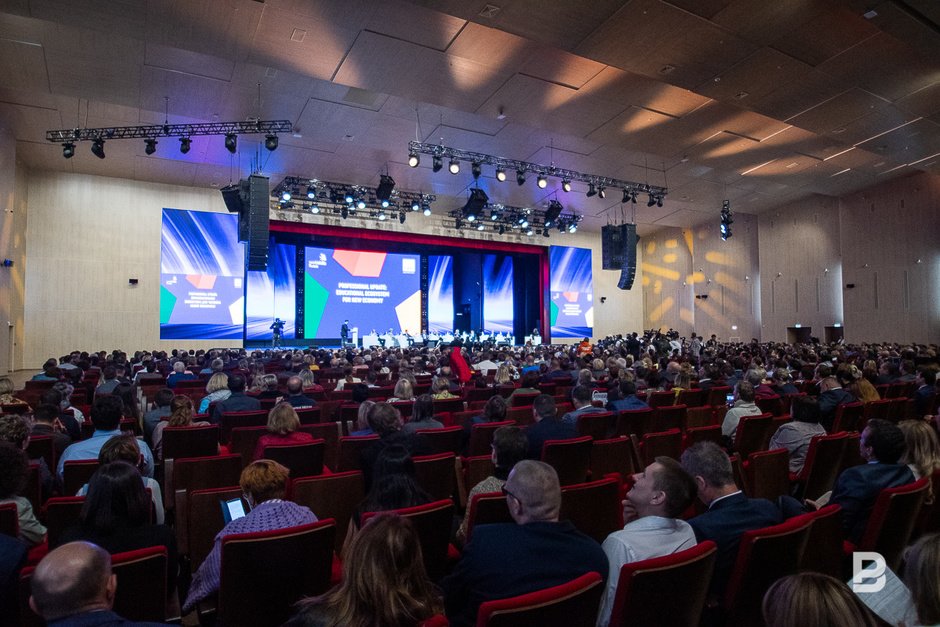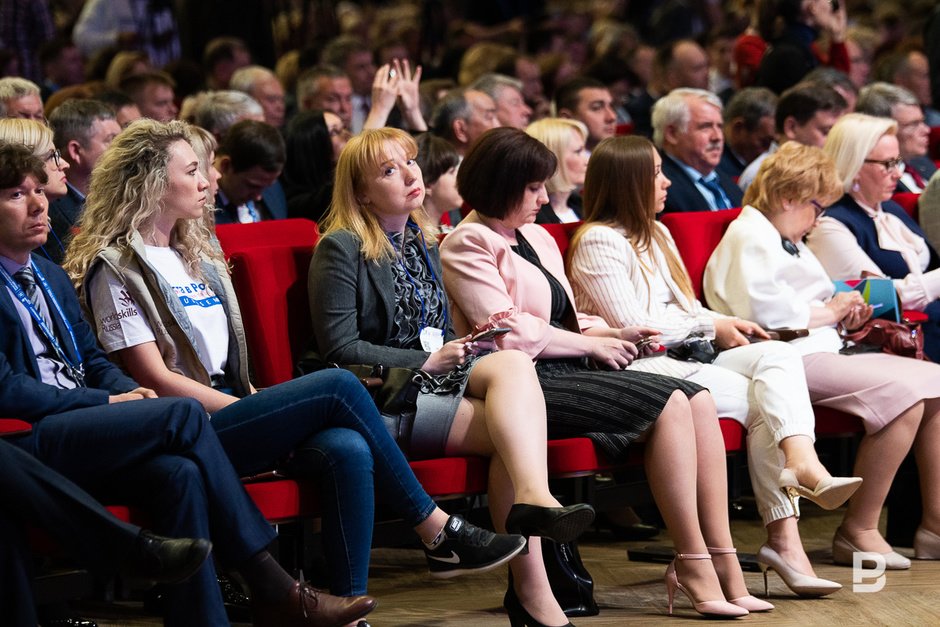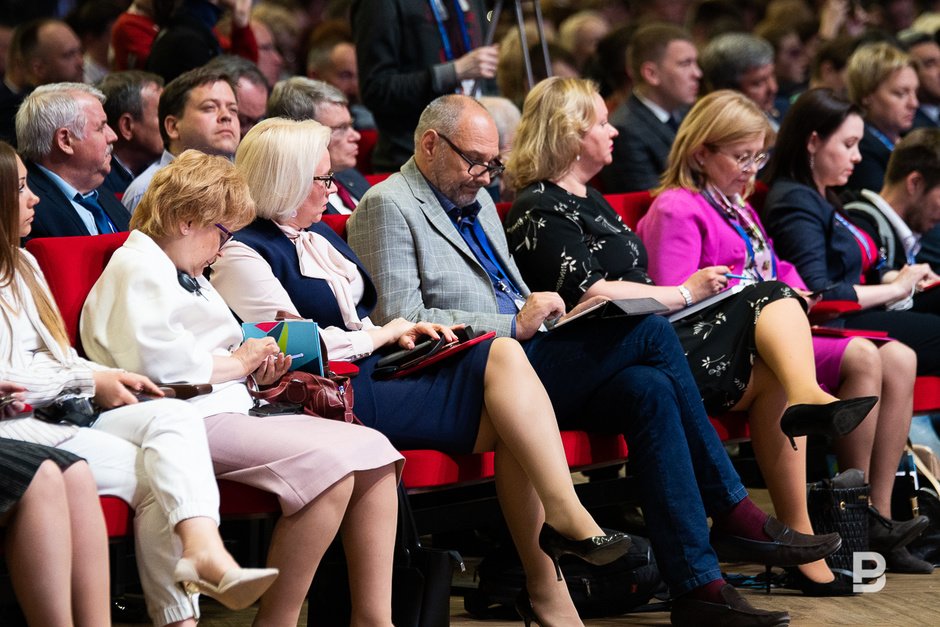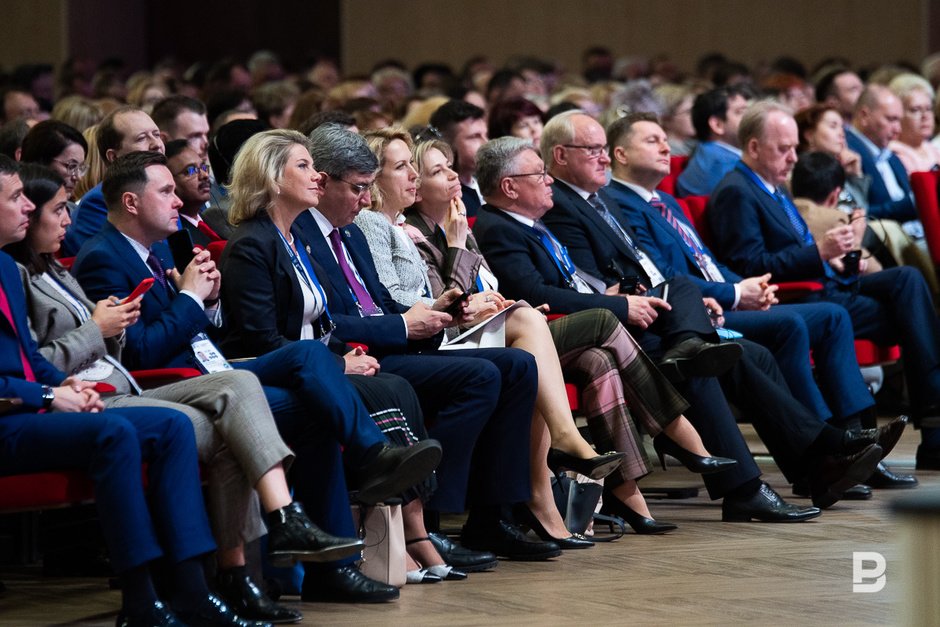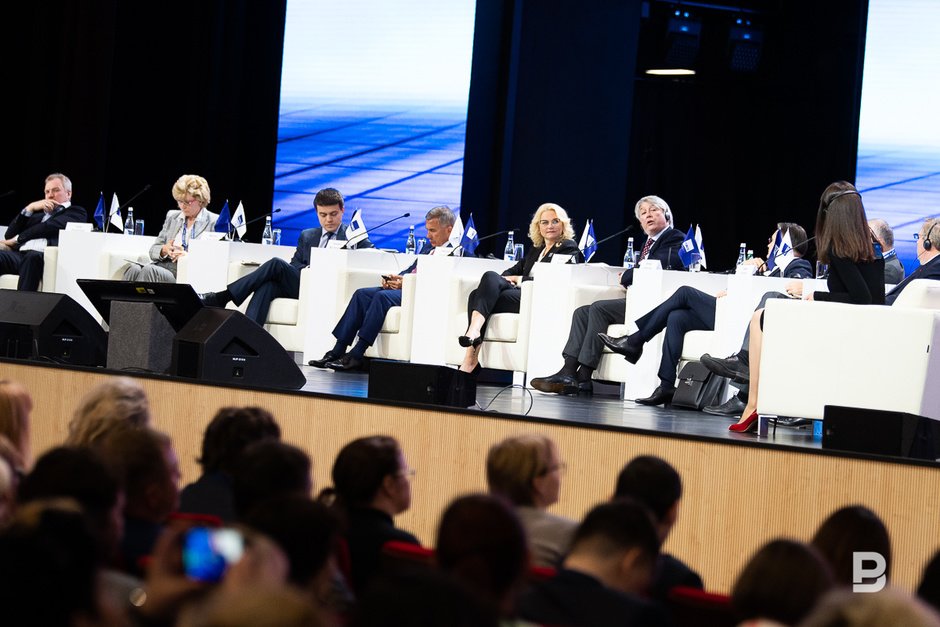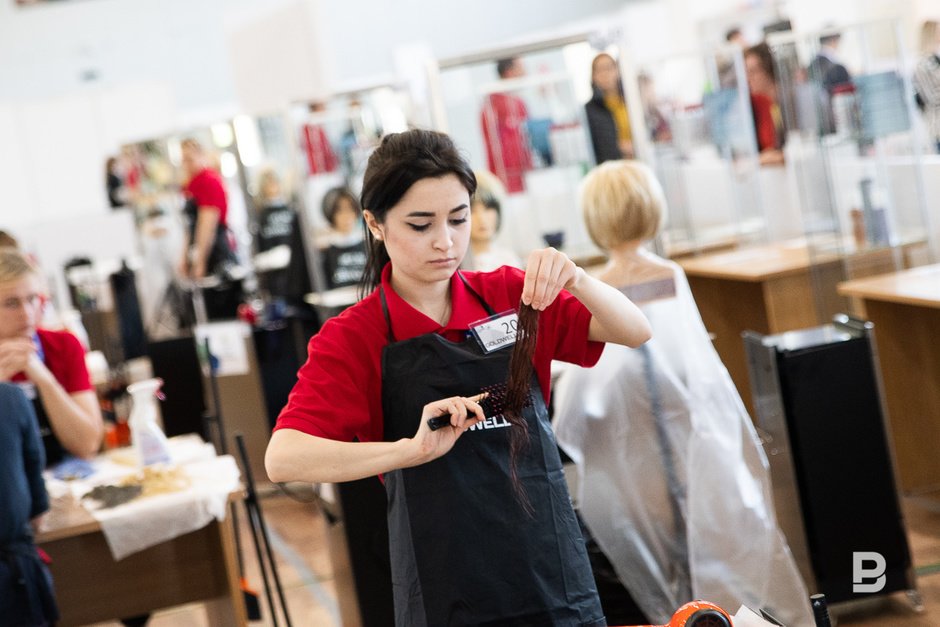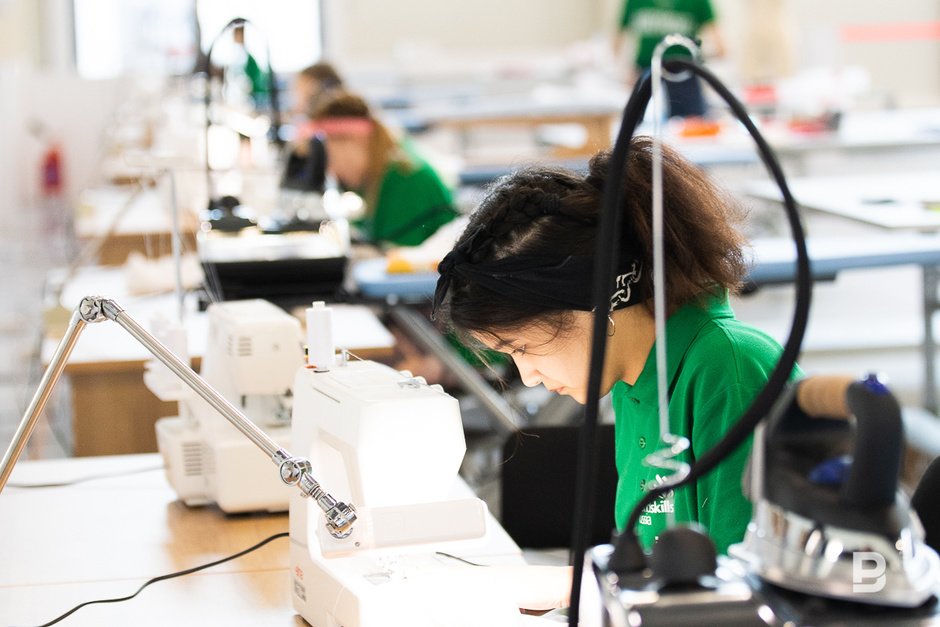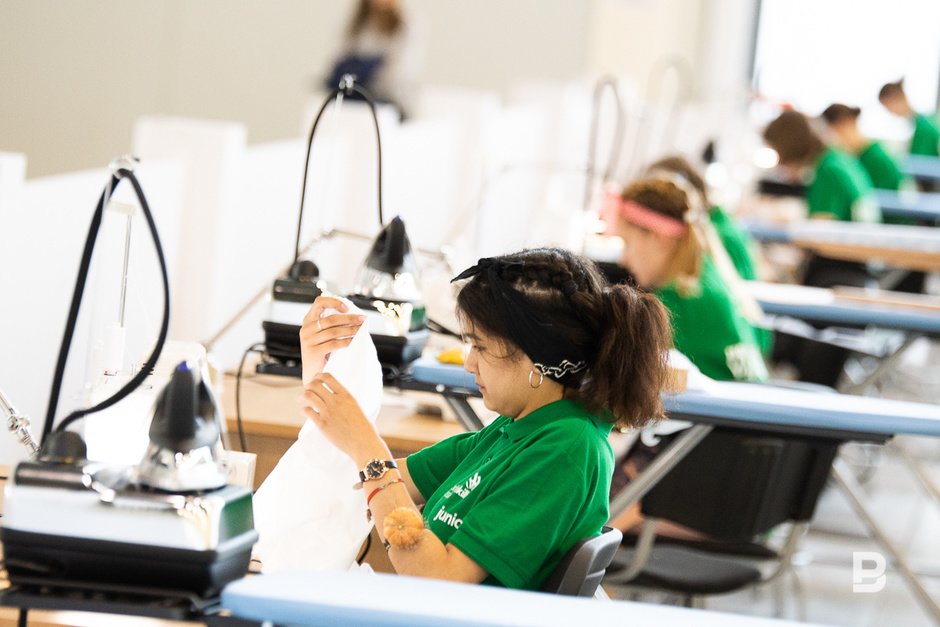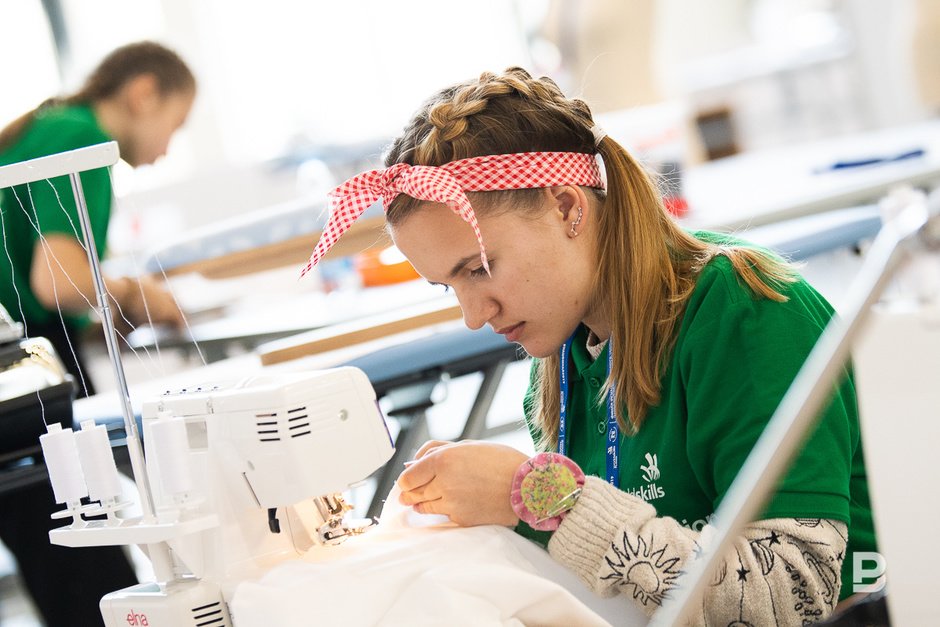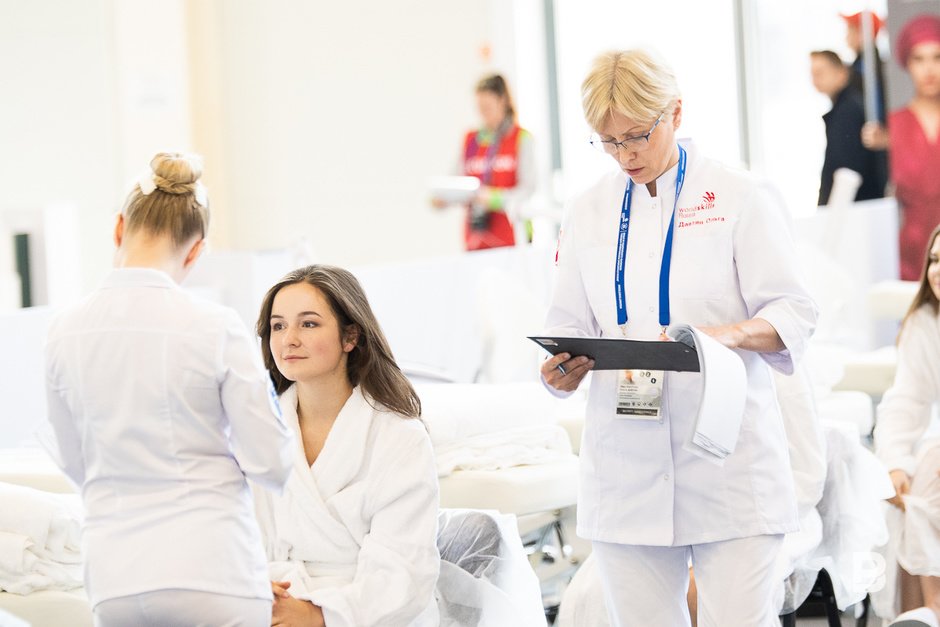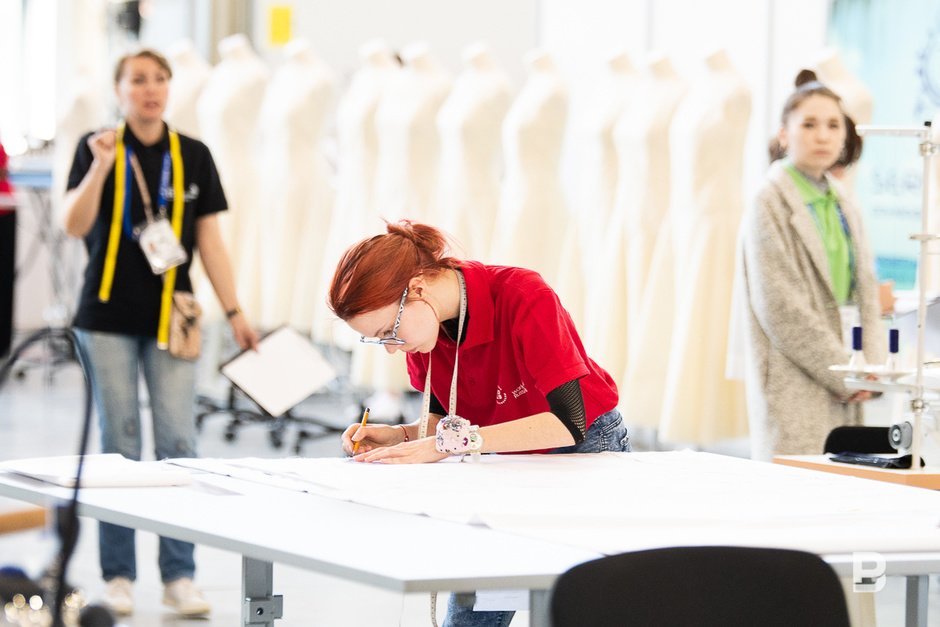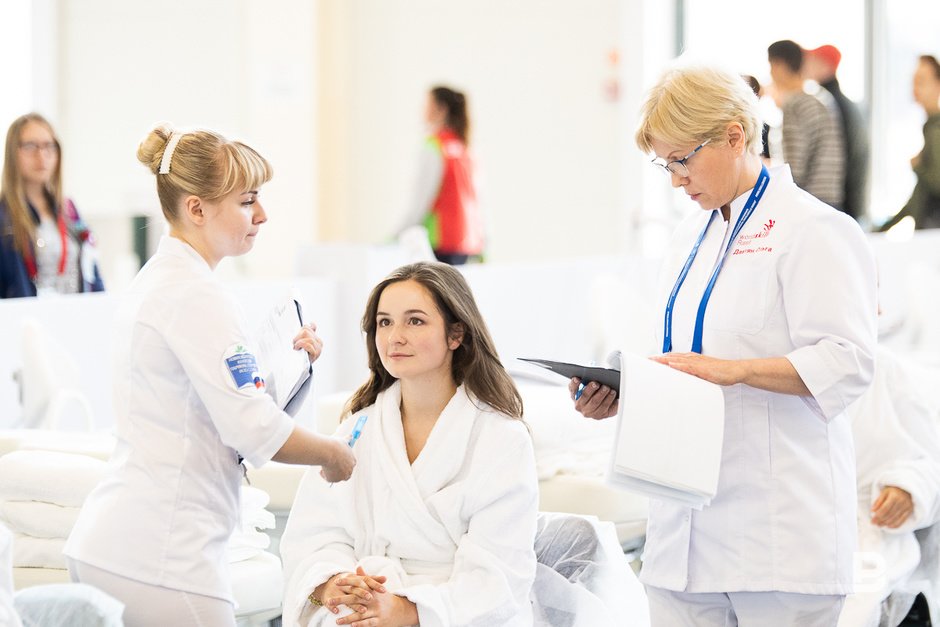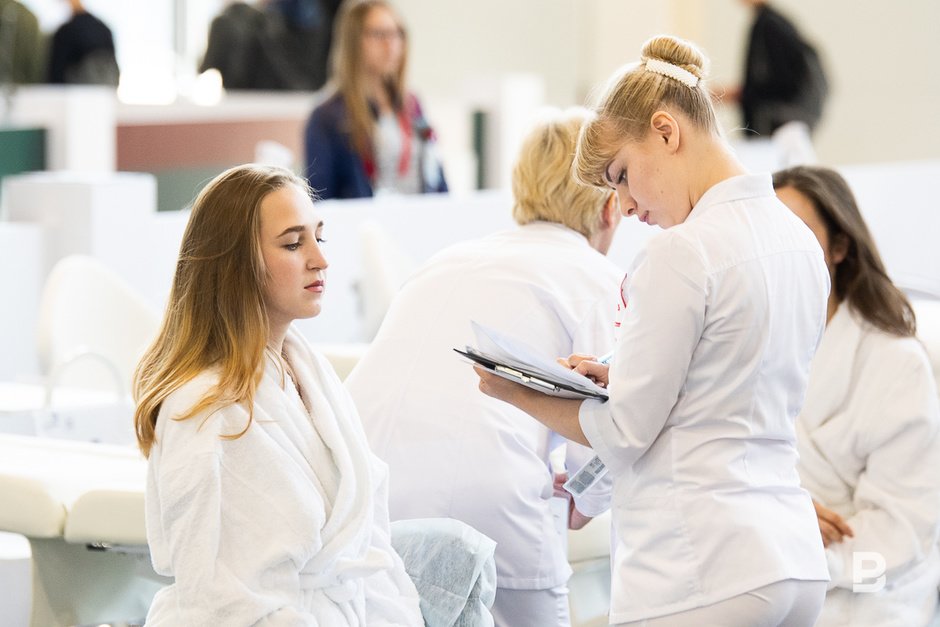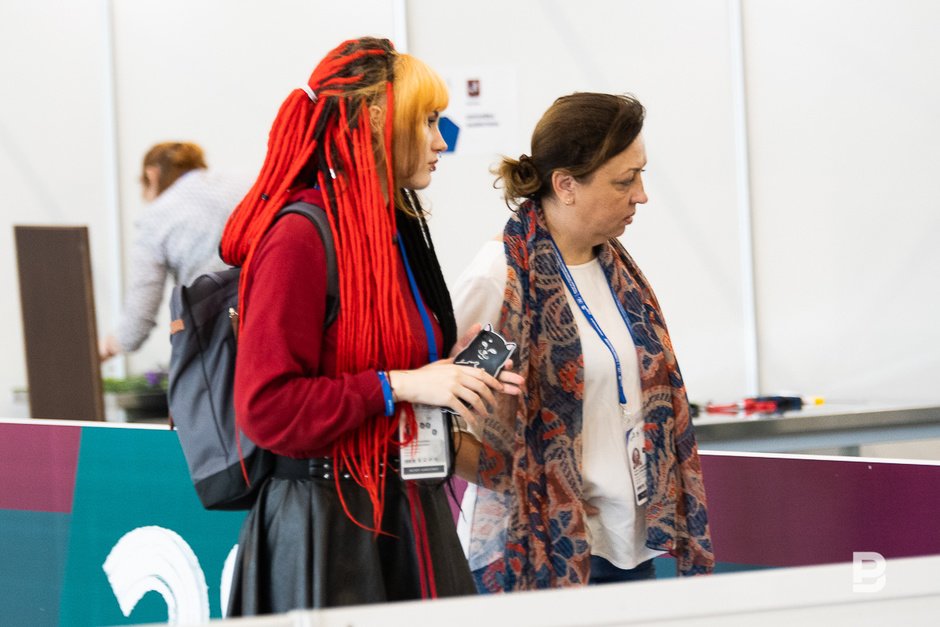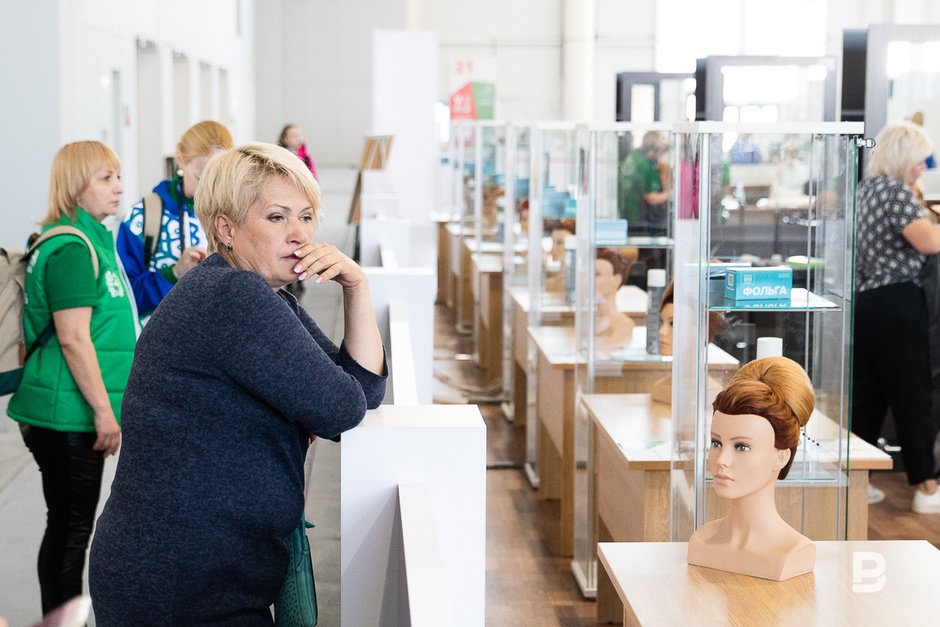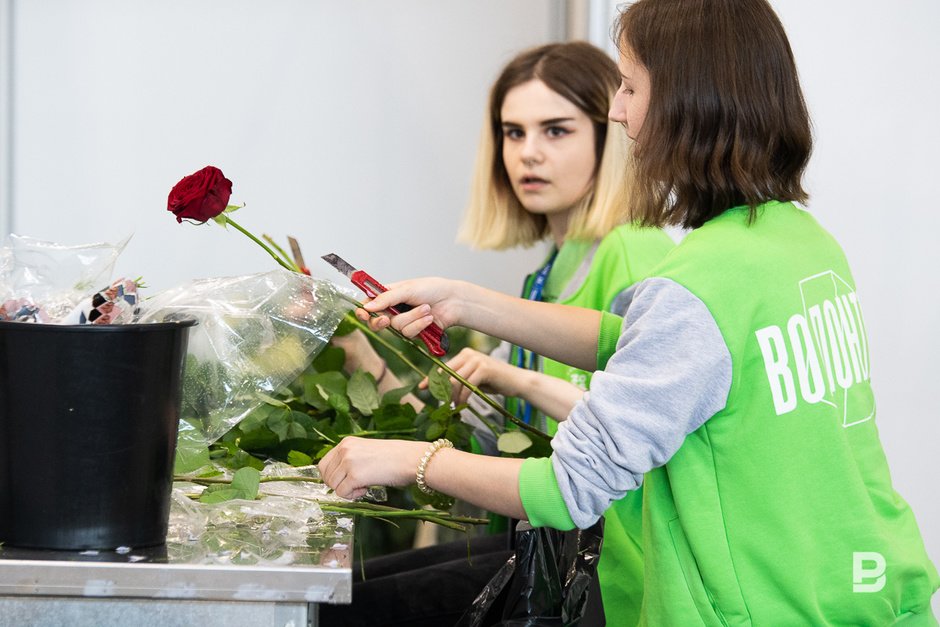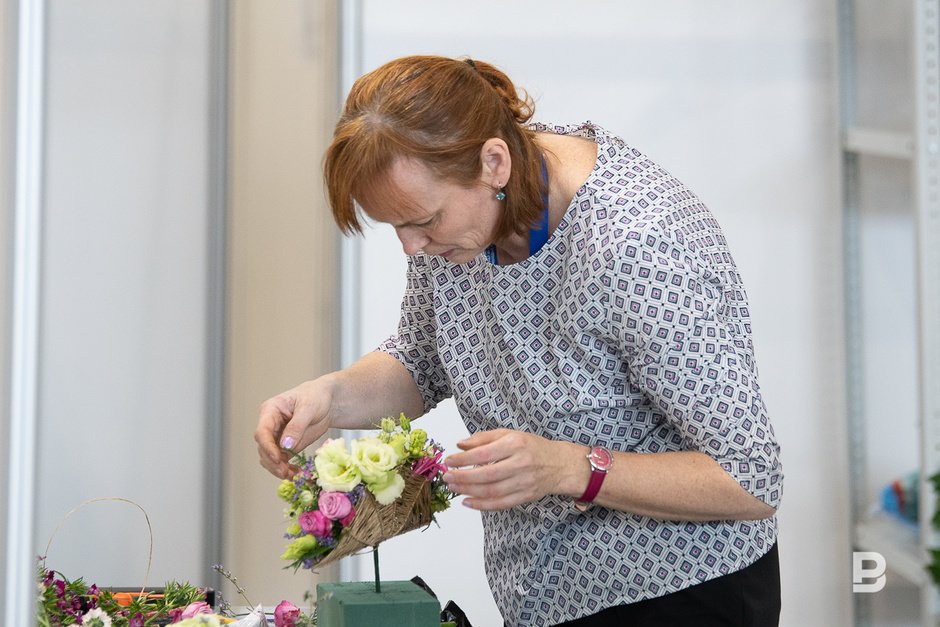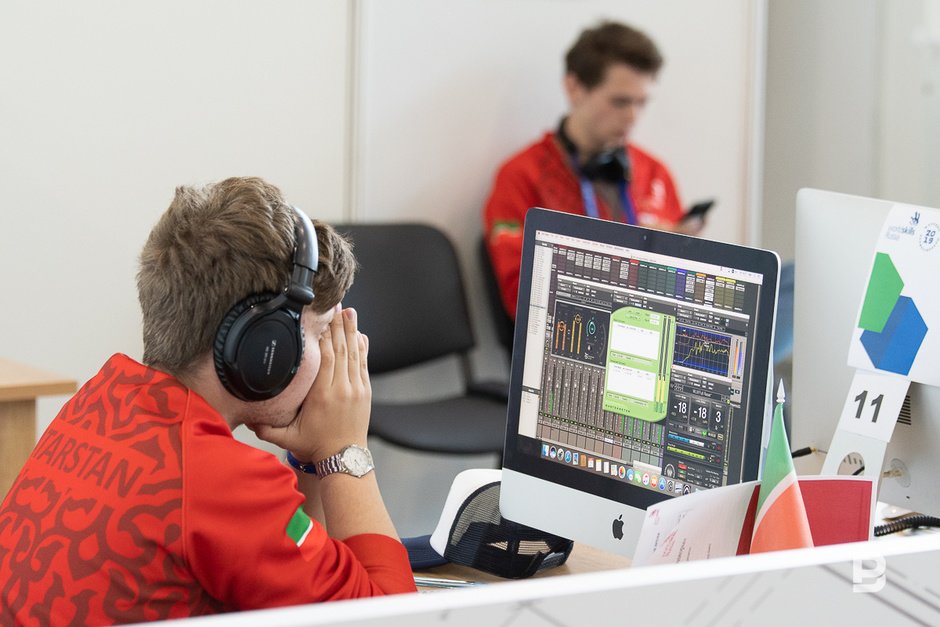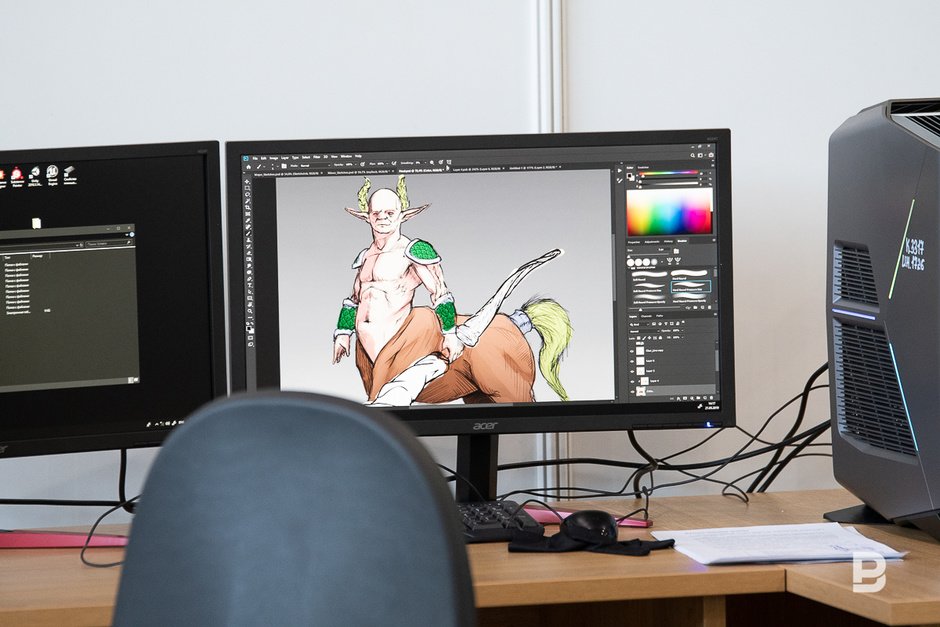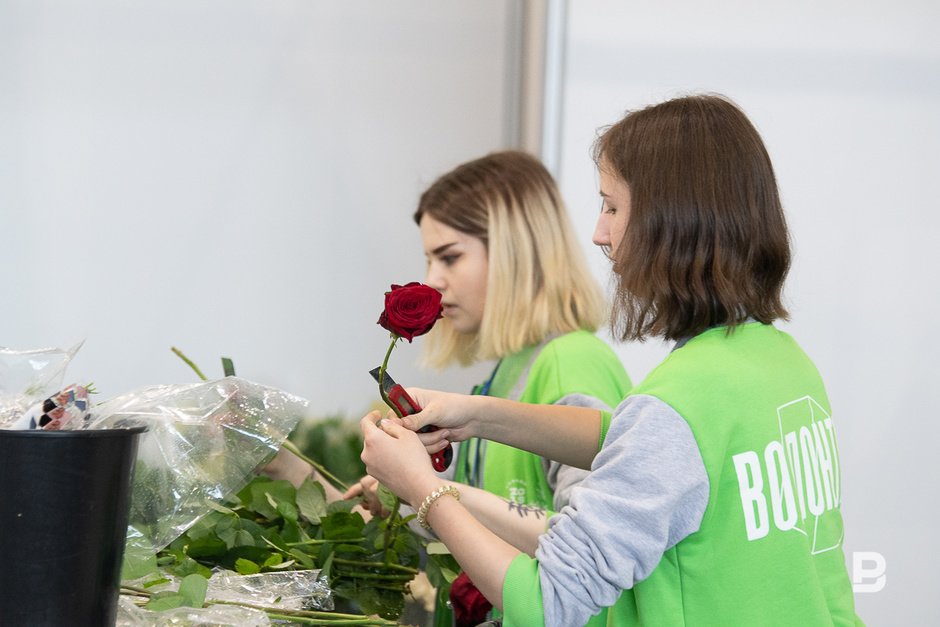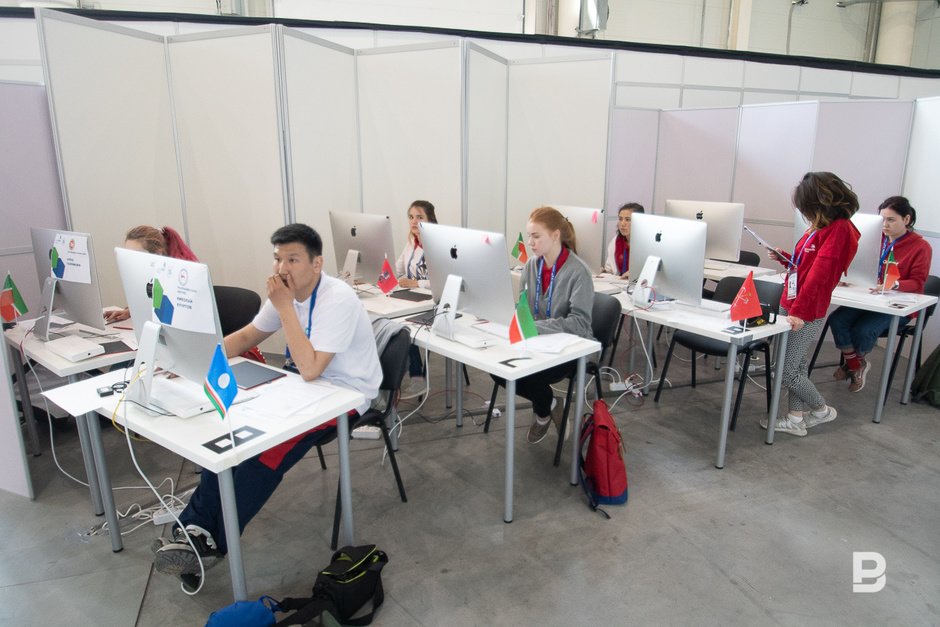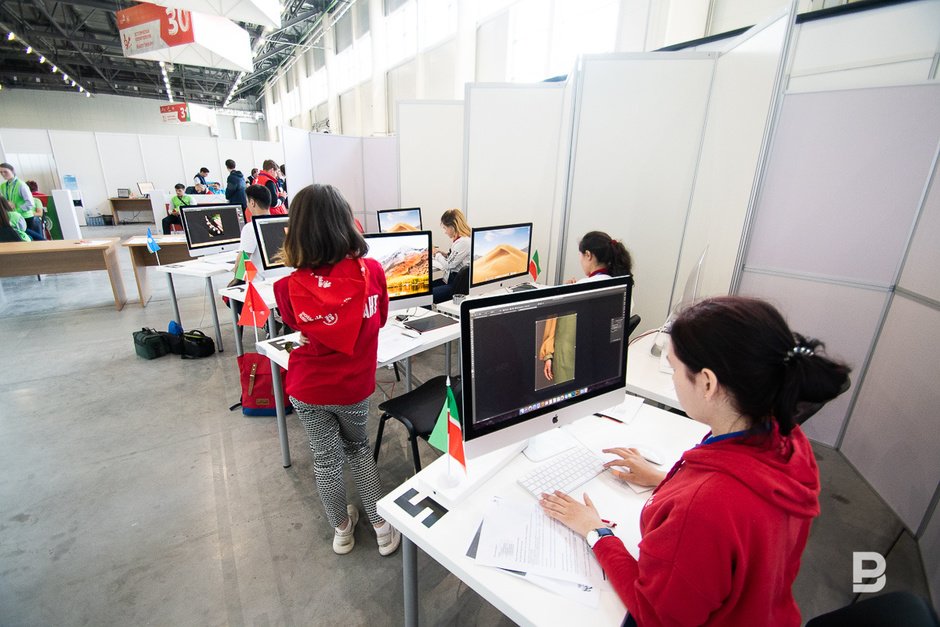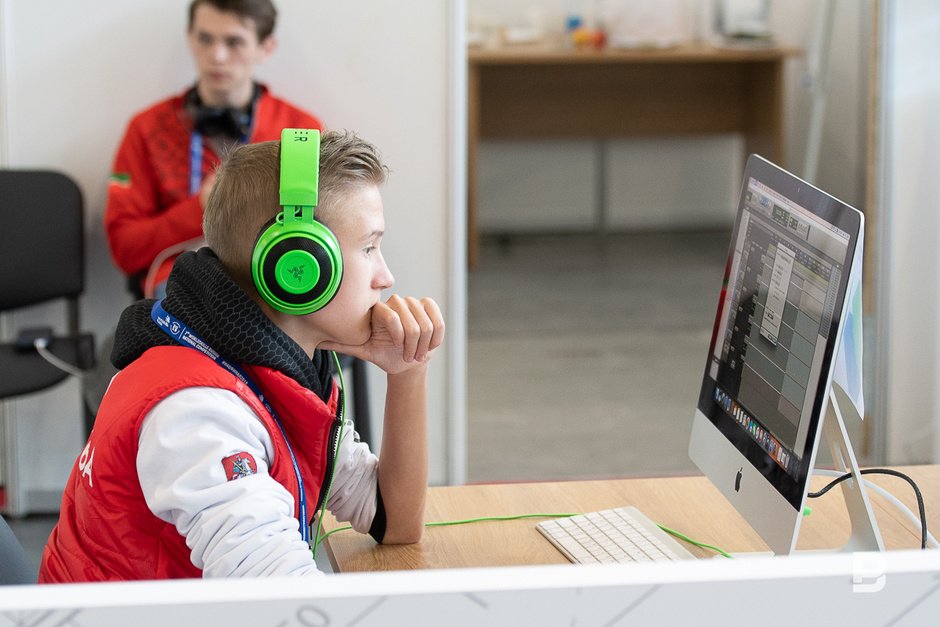Tatiana Golikova: “Our task is to develop labour mobility in our big country”
Speakers of WorldSkills Russia final advised the unclaimed youth to relocate or get a new profession
The education system in Russia doesn’t catch up with changes in the world, while youngsters choose a profession on their parents’ advice — such an approach is fundamentally flawed, it was said at the plenary session before the WorldSkills Russia 2019 final. Speakers urged the young to get ready to regularly change a profession, as production technologies changed very fast, while the model of working in one enterprise all their life doesn’t suit today any more. More is in Realnoe Vremya’s report.
Unnecessary professions
The speakers arrived at the plenary session with a 30-minute delay. “May we then start right off the bat, without an introduction?” moderator, Director General of Young Professionals (WorldSkills Russia) Robert Urazov addresses the hall. A cartoon began: a girl named Olya got a degree as an accountant at her parents’ insistence and got a job in a big company. But she was laid off due to automatisation. Olya complained it was too late to study for a new degree.
The animated character was substituted by a real girl who appeared on the stage and said that we had seen her story on the screen: “My diploma on higher education means nothing any more. On my parents and relatives’ advice, I got a speciality that’s not claimed any more today. I didn’t know what would expect me in the future. I was sitting in the workplace I didn’t like, I saw development opportunities but was afraid because I didn’t know how to get to the future of my dreams, where to find information, where to study”. Olga added that she could have gone to Vladivostok but was scared.
“Who taught you?”
Urazov asked the speakers to advise Olga what to do in her situation. “Our task is to develop labour mobility in our big country so that you will have an opportunity to move somewhere, show your skills if you didn’t get qualifications in the city where you were born, studied or in the enterprise you were laid off,” Vice Chairwoman of the Russian Government on Social Policy Issues Tatiana Golikova offered the heroine. Other options are to get additional education or retrain.
Golikova advised turning to the information resource created in the Federal Service for Labour and Employment in 2010. “A very big number of people have done a new degree thanks to this resource. It allows retraining,” she enumerated Olga’s opportunities.
According to Golikova, the education system must change, and the championship’s programme precisely should help to find out the challenge both education and the labour market are facing today: “We are working on it now, we’ve tried to take notes and make drafts with colleagues. <…> Now it is obvious that we must change. The world changes and it requires us transforming all the processes taking place around together with those serious challenges.”
These changes in particular force every person to master technologies no matter their age. “Mr Minnikhanov, you created a Twitter account when you were older than 50 years,” Urazov said to Tatarstan President Rustam Minnikhanov. “Who taught you?” “Nobody, I fell prey to it, my friends created the account,” the president joked in answer.
“It is a way of getting information. First of all, I try to make events that are interesting to others. On the other hand, there is plenty of people who need some questions, while we, authorities, are told off. It is also a kind of way of interaction. My aides react, we try to react. In other words, the world is completely different today, it’s open, we must be different.”
Ideas get obsolete much faster than they used to do
A person can choose different specialities, what someone likes more. And higher education must change so that the graduate will be competitive, said Minister of Science and Higher Education of the Russian Federation Mikhail Kotyukov. This process has begun, and “we have discussions with rectors,” the minister added: “Graduates must know how to use their knowledge, and it is one of the components of the national project of practice-oriented educational programmes when a lot of attention is paid to practice, interaction with the future employer.” Universities must express their interest in the graduate.
WorldSkills International President Simon Bartley continued the discussion in a different way. To consider your grandmother and parents’ advice means to choose the wrong path, the modern-day youth aren't satisfied with the solutions we have today, he claimed.
He says that the youth, of course, follows their parents, teachers’ ideals. While parents and today’s teachers got ideas from previous generations. But the world moves so fast that these ideas get obsolete faster than they used to do.
According to Bartley, the youth won’t wait for invitations any more — either to Vladivostok or anywhere else — but will choose themselves, whether it is Singapore or Brazil. So they will be self-confident, they won’t do what they are said. Nowadays the youth are very different from the youth we had yesterday or the time when he was given advice.
Global market
“We need Olga, we need such people as Olga,” claimed Chairman of International Institute of Welding and Director of Training and Technology at Lincoln Electric Carl Peters. Olga has a set of interpersonal skills, soft skills, which compares her favourably with yesterday’s graduates. Moreover, women become better welders, he stated, and Urazov confirmed:
“She is not alone, there are other groups of people who need our understanding. About 600,000 inmates are released from prison in the USA every year. If you don’t give them a job, they will end up again in jail. We then save $6 in the prison system per every dollar we invest in their training.”
Modern-day children should understand what they need and know how to choose, noted Vice Minister of Education Irina Potekhina. However, career guidance surveys of 200,000 children late last year showed that almost 90% of children didn’t understand what they wanted and didn't know where to look for something by profession. And if 10% of children did understand it, they didn't know where to look for.
“If psychologists call the first-category unconscious incompetence, the second one is conscious incompetence. And only 1,5% of children have already chosen something and even move in this direction. As an education system, our task is not to increase the first category because they probably will change their profession another ten times but increase the second category, the children who understand what they want and know how to look for what they want. It’s a new challenge for the education system — to help children understand what they would like to do.”
It’s important to teach children to know their way around in the gigantic amount of information: “It seems to them that if they know how to push buttons on the phone well, they already take their bearings. Actually, this is not true, children need teachers-guides who will show them where to go. According to Potekhina, teachers themselves don’t know and they also should learn how to navigate.
10% ratio
Although some professions disappear annually, demand for 5-10 million new jobs in the so-called economy of knowledge arises at the same time that must know how to solve non-standard problems. But Professor of Practice at Skolkovo Moscow School of Management Pavel Luksha asked if the education system trained them:
“The ratio from a perspective of competences between those who are released and must enter is 10-15%. Some competencies disappear, and the economy won’t need them. There is nowhere for others to come from, in fact. In my opinion, the main idea of the video is that it’s late for Olga to retrain — a widespread notion that a person chooses a path once and forever and covers it. But now the cycle of the appearance of new technologies and reaching the peak of development and disappearance and substitution for other technologies is 10-15 years.
Every person will change a lot of careers in life. Consequently, everyone should get ready for a situation where we should ask ourselves once in 2-3 years if we are doing the right thing,” Luksha concluded.
